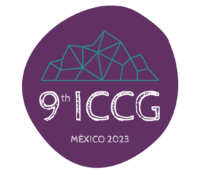Faced with increasing competition from cheaper alternatives and growing concern about carbon emissions, coal energy generation is in decline. Across the United States, communities that host coal-fired power plants and coal extraction are wrestling with what this will mean for their communities, fearing job losses, a reduction in tax revenue, and an associated rollback of local services. In Montana, much attention has been paid to the community of Colstrip, home of one of the western United States’ largest coal-fired power plants. But comparatively less attention has been paid to the Northern Cheyenne Tribe, whose reservation lies a mere 20 miles away—the Tribe has estimated that 1 in 5 of its members would lose employment should the plant permanently close (Turner, 2022). As the coal industry continues its decline as part of the broader energy transition, it is critical to assess what this means for coal-dependent tribal nations like the Northern Cheyenne and how tribal members are making sense of these trends. Taking the Northern Cheyenne Tribe as a case study, this paper (1) examines how the Northern Cheyenne interact with coal extraction and its economic and socio-ecological impacts and (2) investigates how the Northern Cheyenne understand the energy transition and their place in it. The first objective aims to understand the multiple, diverse perspectives Northern Cheyenne tribal members have towards coal extraction and their experiences with it. As Curley (2019) has documented on the Navajo Nation, tribal perspectives towards resource extraction are not monolithic—understandings of coal may reflect ideas of dependency, colonization, or a means to a dignified life. Teasing apart these multiple, often conflicting perspectives and experiences provides a more nuanced understanding of energy politics within the Northern Cheyenne Tribe and natural resource-dependent tribal nations more broadly. The second objective focuses on what are likely to be equally diverse ideas about how Northern Cheyenne will adapt in the face of coal's decline. With the recent closure of two of the four generating units at the Colstrip power plant, there has been a growing discussions about how Colstrip, Rosebud County, and the State of Montana will pivot to fill the economic void left by coal (Roemer and Haggerty, 2022). This objective zeroes in on the perspectives of the Northern Cheyenne and how tribal members articulate their visions for a post-coal future and their community's place in it, thereby extending this discussion about energy transition to Montana's Native communities. Taken together, this paper aims to shed light on the ways Indigenous people are navigating the volatile realities of resource extraction and the shifting economics of energy production.
Keywords: coal, energy transition, indigenous geography, resource geography.
